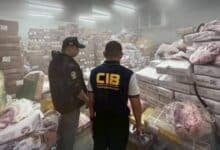Aleph Farms revolutionises meat production in Southeast Asia

In a groundbreaking alliance set to revolutionise meat production, Aleph Farms has forged a strategic partnership with biomanufacturer BBGI and synbio research powerhouse Fermbox Bio.
This collaboration is set to pave the way for Thailand’s inaugural cultivated meat plant, heralding a new era of sustainable protein sourcing in Southeast Asia.
In a bid to enhance production capabilities and foster economic growth, Aleph Farms is strategically leveraging its US$118 million (approximately 423 million baht) funding to pioneer an asset-light approach in manufacturing, setting a precedent for responsible and scalable expansion in the region.
Aleph Farms co-founder and CEO, Didier Toubia, underscores the significance of this partnership, emphasising the company’s commitment to sustainable, resilient food systems and equitable growth.
With a focus on an asset-light manufacturing model, Aleph Farms aims to drive down costs and boost scalability, aligning with its strategic vision for sustainable growth in the region. Toubia emphasises the importance of this approach, highlighting the company’s dedication to responsible expansion and food security.
Toubia’s strategic foresight is evident as Aleph Farms prioritises product development and branding, leaving production to trusted partners like BBGI and Fermbox Bio. This collaborative effort underscores the company’s commitment to efficient scaling and mitigating supply chain risks.
The partnership’s significance extends beyond economic prosperity, as Aleph Farms aims to democratise access to sustainable protein sources, aligning with Thailand’s development goals and government initiatives, reported Green Queen.
Furthermore, Aleph Farms’ groundbreaking regulatory approval for cultivated beef sets a precedent for innovation in the alternative protein sector. As Thailand’s appetite for sustainable meat alternatives grows, this partnership marks a pivotal moment in the country’s journey towards a more resilient and environmentally conscious food system.
In related news, climate change and the moderate effects of the El Niño phenomenon have led to a reduction in Thailand’s water supply, prompting authorities to advise second-crop farmers against the cultivation of off-season rice. The lower water levels have necessitated a revised water distribution plan to support existing plantations where crops are yet to be harvested.
Latest Thailand News
Follow The Thaiger on Google News:


























